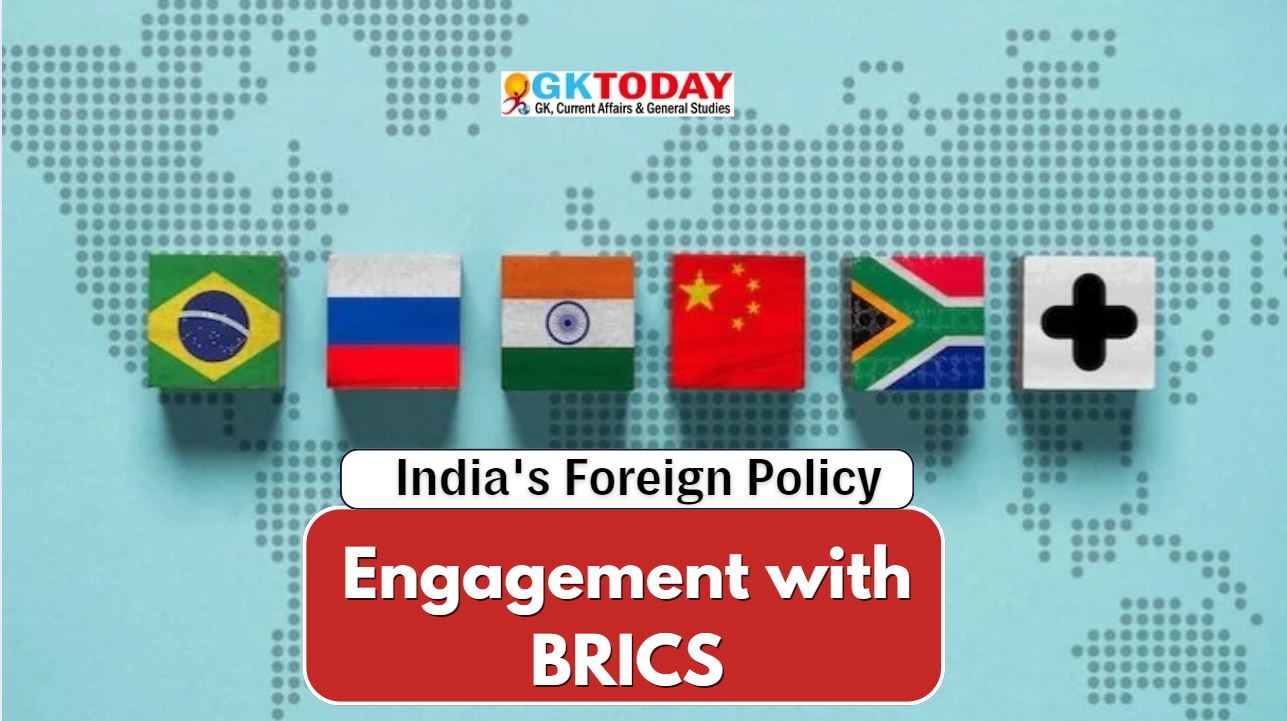India’s Foreign Policy and Engagement with BRICS [UGC NTA NET Political Science Notes]
India’s foreign policy is a dynamic framework that reflects its aspirations for growth and stability in an increasingly multipolar world. As a founding member of BRICS, India’s engagement with this group of emerging economies plays a very important role in shaping its international relations.
Overview of BRICS
BRICS is an acronym for Brazil, Russia, India, China, and South Africa.
Formation
– Established in 2009 as BRIC. – South Africa joined in 2010, expanding the group’s scope.
Members
– Brazil – Russia – India – China – South Africa
Purpose
– To promote peace, security, and development. – Focuses on encouraging cooperation in a multipolar world.
India’s Role in BRICS
India has been player in BRICS since its inception.
Founding Member
– India is one of the original four members of BRIC. – Its involvement marks its commitment to emerging economies.
Leadership
– Hosted the 5th BRICS Summit in 2013 in Durban, South Africa. – Showcases India’s diplomatic engagement on a global platform.
Current Chairmanship
– Held the BRICS presidency in 2021 and 2023. – Strengthened India’s leadership role within the group.
Economic Cooperation
Economic collaboration is a mainstay of BRICS relations.
New Development Bank (NDB)
– Established in 2014. – Funds infrastructure and sustainable development projects.
Contingent Reserve Arrangement (CRA)
– A financial safety net for member countries. – Provides liquidity and precautionary support during crises.
Trade Relations
– Aims to increase intra-BRICS trade. – In 2021, trade volume reached approximately $100 billion.
Political and Security Cooperation
BRICS also focuses on political and security issues.
Global Governance
– Advocates for reforms in global institutions. – Calls for a more representative UN Security Council.
Counter-Terrorism
– Joint statements emphasising the need for cooperation against terrorism. – Highlights a collective approach to global security challenges.
Sustainable Development Goals (SDGs)
– Collaborative efforts to achieve SDGs. – Focus on health, education, and environmental sustainability.
Cultural and People-to-People Exchanges
Cultural initiatives enhance mutual understanding among member states.
Cultural Festivals
– Initiatives to promote cultural exchanges. – Encourages appreciation of diverse traditions.
Academic Collaborations
– Establishment of BRICS Network University. – Facilitates academic cooperation and research.
Challenges in BRICS Relations
Despite its potential, BRICS faces several challenges.
Geopolitical Tensions
– India-China border disputes affect bilateral relations. – Tensions can hinder cooperation within BRICS.
Divergent Interests
– Different political systems and economic priorities. – Varying agendas can complicate consensus-building.
Coordination Issues
– Difficulty in achieving agreement on key issues. – National interests often conflict, leading to delays.
Recent Developments
BRICS continues to evolve in response to global changes.
Expansion Talks
– Discussions on expanding BRICS membership. – Potential new members include Argentina and Egypt.
2023 Summit
– Focus on enhancing cooperation in digital economy, health, and climate change. – Aims to address contemporary global challenges.
Strategic Importance for India
BRICS holds strategic significance for India.
Multipolarity
– Strengthens India’s position against Western dominance. – Supports a balanced global power structure.
Economic Diversification
– Reduces dependency on Western economies. – Enhances ties with emerging markets for sustainable growth.
Regional Influence
– Boosts India’s influence in the Global South. – Solidifies relationships with developing nations.
Future Prospects
The future of BRICS appears promising for India.
Increased Collaboration
– Potential for deeper economic and political ties. – Global dynamics are shifting towards multipolarity.
Focus on Innovation
– Emphasis on technology and innovation cooperation. – Drives growth and development among member states.
Climate Change Initiatives
– Joint efforts to tackle climate change. – Promotes sustainable development and environmental responsibility.



